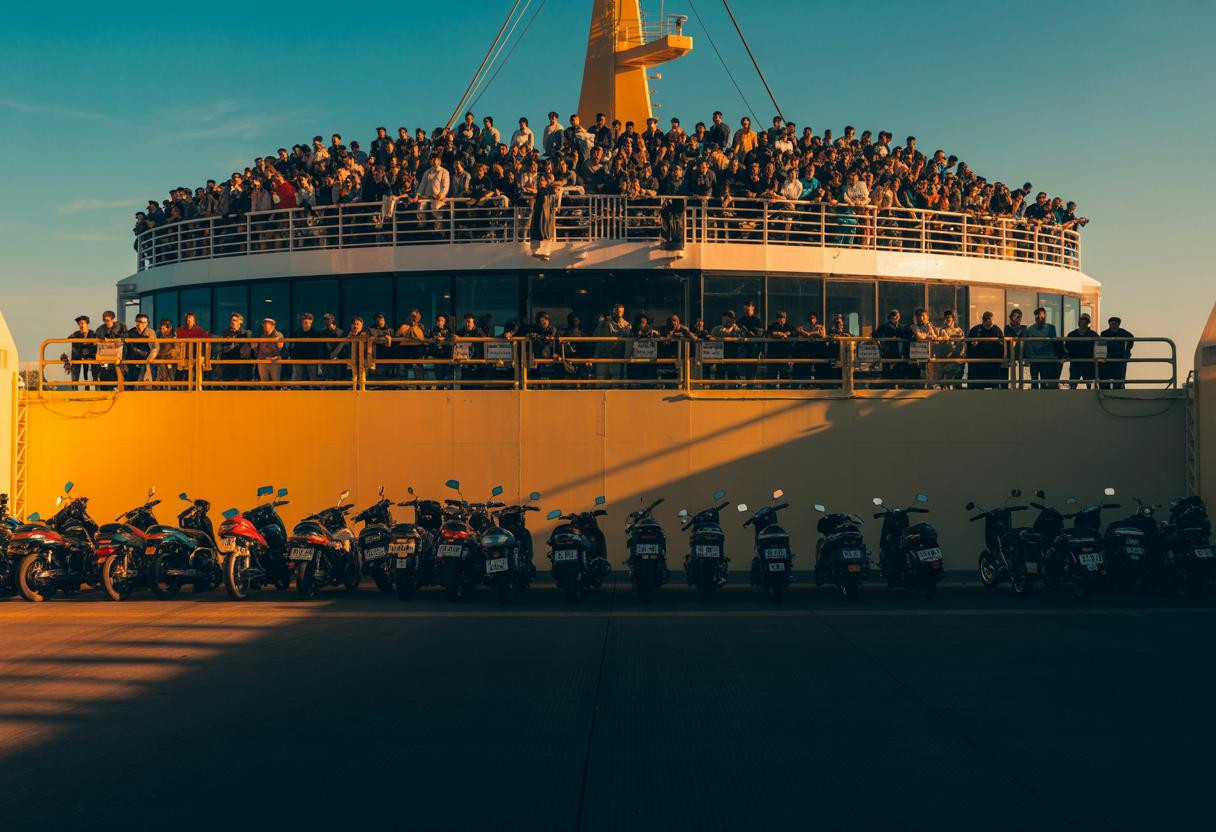The 2025 Isle of Man TT reveals a fascinating transportation paradox that’s reshaping one of motorsport’s most legendary events. While ferry passenger numbers surged by 4.5% to nearly 40,000 travelers, motorcycle bookings simultaneously declined—creating an unexpected shift that challenges everything we thought we knew about TT attendance patterns. This counterintuitive trend signals a profound transformation in how fans experience the world’s most dangerous race.
The demographic revolution transforming TT culture
The introduction of the new Manxman ferry has fundamentally altered visitor dynamics, accommodating more foot passengers while paradoxically reducing motorcycle transport capacity during peak periods. Weather-related disruptions and delayed deployment of the larger vessel created supply-demand imbalances for motorcycle spots, forcing traditional riders to reconsider their travel plans.
This shift reflects broader cultural changes as the psychological factors that drive TT participation evolve. While hardcore enthusiasts historically dominated attendance, the 2025 event attracted diverse demographics seeking spectator experiences rather than motorcycle participation.
Steam Packet Company data reveals that vehicle booking constraints pushed many traditional attendees toward alternative transport, with some choosing pushbikes or foot travel over their beloved motorcycles. This represents a dramatic departure from 2024’s record-breaking 13,385 motorcycle ferry bookings.
Economic implications of changing attendance patterns
Revenue streams adapting to new visitor profiles
Local businesses are rapidly adjusting to accommodate foot passengers who typically spend differently than motorcycle enthusiasts. Accommodation providers report increased demand for budget-friendly options and serviced apartments, while traditional biker-focused establishments face uncertain futures.
The economic calculus is complex: foot passengers may spend less on specialized motorcycle services but more on merchandise, food, and entertainment. This shift toward educational tourism aspects of the dangerous destination attracts visitors interested in the island’s broader cultural offerings.
Infrastructure strain and opportunity
The Manxman ferry’s operational challenges highlight critical infrastructure gaps. Despite increased passenger capacity, reduced motorcycle spaces created a bottleneck that may persist until full operational efficiency is achieved.
Tourism officials are capitalizing on this transition by promoting the TT as a comprehensive motorsport festival rather than exclusively a motorcycle event. The island’s rich Viking heritage now features prominently in marketing materials targeting families and cultural tourists.
Strategic adaptations for stakeholders
Ferry operators balancing competing demands
Steam Packet Company faces the challenge of maximizing passenger revenue while maintaining relationships with core motorcycle communities. Early-bird booking incentives and guaranteed motorcycle spots represent potential solutions to this delicate balance.
Event organizers embracing change
TT organizers are strategically repositioning the event to attract broader audiences without alienating traditional participants. This includes enhanced safety protocols that address concerns about high-speed crashes affecting participation decisions.
Multi-modal motorsport festival branding allows organizers to celebrate the event’s motorcycle heritage while welcoming new demographic segments seeking world-class racing experiences.
Practical implications for future attendees
Prospective visitors should book accommodations earlier and consider alternative transport arrangements. Foot passengers enjoy greater booking flexibility but may miss the traditional camaraderie of motorcycle-focused gatherings.
The trend suggests motorcycle enthusiasts should secure ferry bookings well in advance or explore shared transport options through enthusiast communities. Meanwhile, families and casual fans benefit from improved accessibility and diverse entertainment options.
The evolving identity of motorsport’s most dangerous race
The 2025 TT represents a pivotal moment where tradition meets accessibility. While motorcycle culture remains central to the event’s identity, expanding demographics ensure the legendary race continues evolving for future generations. This transportation paradox ultimately reflects the TT’s successful adaptation to changing tourism patterns while preserving its essential character.
